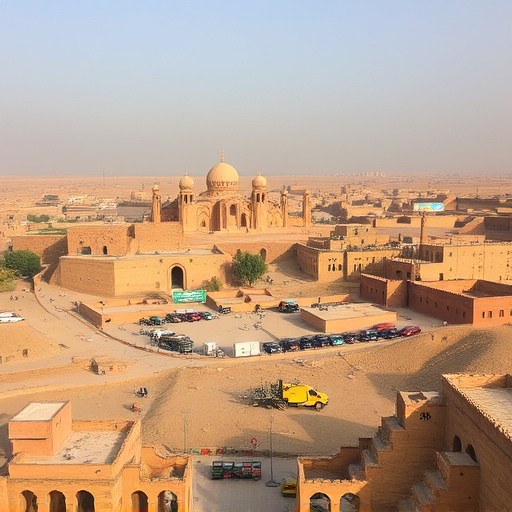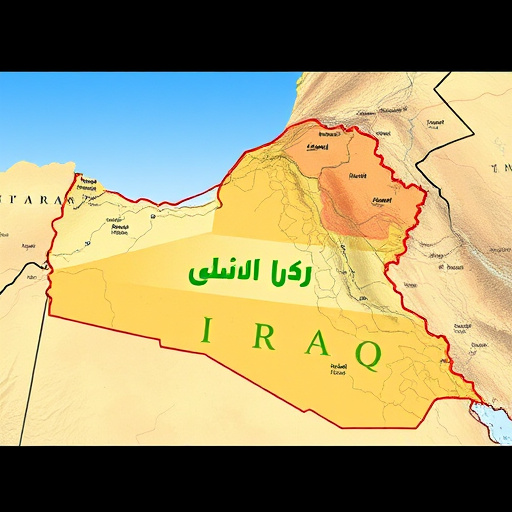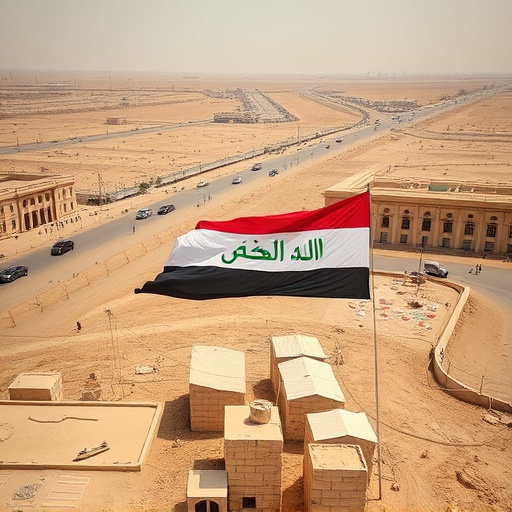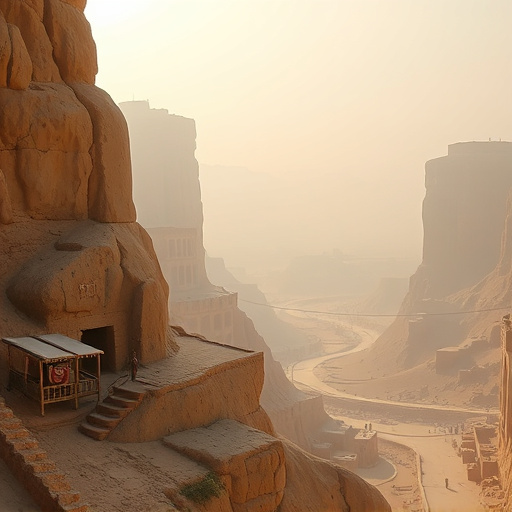Iraq's economy is a diverse tapestry woven with oil, agriculture, construction, and services sectors. Despite historical challenges, the country boasts untapped potential, with major cities like Baghdad, Basra, and Mosul driving growth. International collaboration in reconstruction, education, and healthcare offers opportunities for economic diversification, leveraging Iraq's natural resources, cultural heritage, and strategic location.
Iraq’s economy, a complex tapestry woven with historical threads, is evolving. Beyond its oil-rich landscape, diverse sectors like agriculture, manufacturing, and services are gaining momentum. This article explores the dynamic nature of Iraq’s economic landscape, delving into its key industries, navigating major challenges, and uncovering opportunities for growth. We examine strategies to foster development, focusing on Iraq’s potential as a regional economic powerhouse.
- Overview of Iraq's Economic Sectors
- Major Challenges and Opportunities
- Strategies for Economic Growth and Development in Iraq
Overview of Iraq's Economic Sectors

Iraq’s economy is diverse and complex, with several key sectors contributing to its growth and development. What are the top industries in Iraq? Firstly, oil and natural gas play a significant role, as the country boasts vast reserves and is one of the largest producers in the region. This sector has historically been a cornerstone of Iraq’s economic stability and global influence. Beyond energy, agriculture and livestock farming are essential, benefiting from fertile lands and a favorable climate, especially during the best time to visit Iraq for weather purposes.
Other notable industries include construction, which is booming due to ongoing infrastructure development projects, and manufacturing, with a focus on textiles, food processing, and automotive parts production. Furthermore, services sectors such as banking, telecommunications, and tourism are expanding, offering promising opportunities for both locals and international investors. Learning Arabic in Iraq can facilitate engagement within these dynamic industries, showcasing the country’s rich cultural tapestry alongside its economic potential.
Major Challenges and Opportunities

Iraq’s economy faces significant challenges stemming from its history of political instability and international sanctions. The country relies heavily on oil exports, accounting for over 90% of its revenue, making it vulnerable to fluctuations in global energy markets. Moreover, decades of conflict and the 2003 Iraq War have left critical infrastructure damaged and economic growth hindered. Despite these hurdles, there are promising opportunities for recovery and diversification.
The largest cities in Iraq by population, such as Baghdad, Basra, and Mosul, serve as economic hubs, offering diverse sectors like agriculture, industry, and services potential for expansion. What are the main ethnic groups in Iraq? This question reflects a complex demographic landscape that can be leveraged to foster inclusivity and attract international investment. Opportunities for international volunteers in Iraq also abound, with initiatives focused on reconstruction, education, and healthcare. Notably, visit us at universities in Baghdad, Iraq anytime, to explore collaboration and support local efforts. Despite the Iraq war facts, which highlight the country’s tumultuous past, there are promising signs of economic rebirth as Iraq seeks to diversify its economy and attract global partners.
Strategies for Economic Growth and Development in Iraq

Iraq’s economic growth and development strategies have been shaped by its unique historical context, including periods of conflict and political instability. Despite these challenges, the country has implemented various initiatives to boost its economy. One key focus is diversifying away from oil dependency, encouraging investment in sectors like agriculture, manufacturing, and tourism. The history of Iraq, with its rich cultural heritage and strategic location, offers untapped potential for sustainable development.
Promoting good governance and tackling corruption are vital steps in fostering a business-friendly environment. How does corruption impact business in Iraq? Streamlining bureaucratic processes and strengthening legal frameworks can attract local and foreign investors. Additionally, leveraging the country’s natural resources, such as its fertile agricultural lands and strategic waterways—including the Tigris and Euphrates rivers that flow through Iraq—can stimulate economic activity and create new opportunities. Even so, navigating these developments requires careful planning and cooperation between the government, private sector, and civil society. To learn Arabic in Iraq or explore business prospects, give us a call at [Learning Arabic in Iraq].
Iraq’s economy is a complex landscape that, with the right strategies, can flourish. By leveraging its diverse sectors, addressing historic challenges, and adopting innovative approaches, Iraq has the potential to become a thriving hub of economic growth in the region. Targeted investments in infrastructure, education, and technology, coupled with favorable policies, can unlock the country’s full potential, fostering stability and prosperity for its people.
